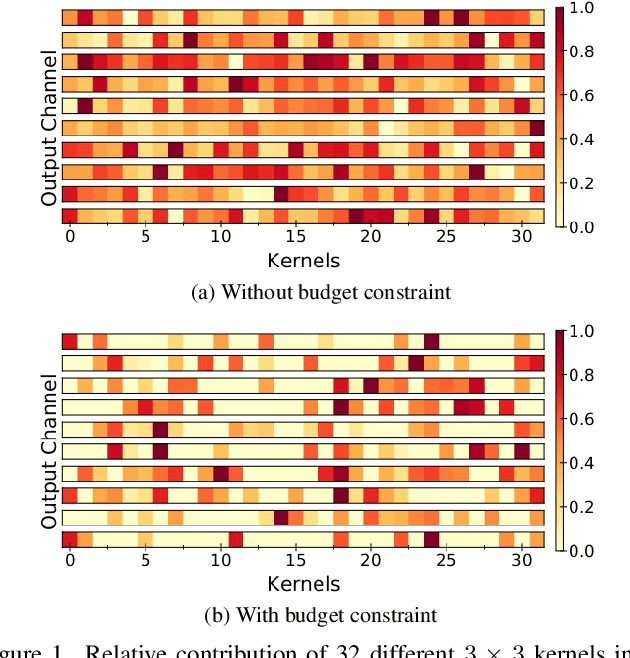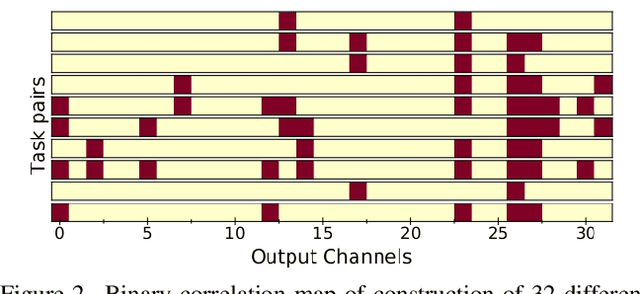Dynamic Kernel Selection for Improved Generalization and Memory Efficiency in Meta-learning
Paper and Code
Jun 03, 2022



Gradient based meta-learning methods are prone to overfit on the meta-training set, and this behaviour is more prominent with large and complex networks. Moreover, large networks restrict the application of meta-learning models on low-power edge devices. While choosing smaller networks avoid these issues to a certain extent, it affects the overall generalization leading to reduced performance. Clearly, there is an approximately optimal choice of network architecture that is best suited for every meta-learning problem, however, identifying it beforehand is not straightforward. In this paper, we present MetaDOCK, a task-specific dynamic kernel selection strategy for designing compressed CNN models that generalize well on unseen tasks in meta-learning. Our method is based on the hypothesis that for a given set of similar tasks, not all kernels of the network are needed by each individual task. Rather, each task uses only a fraction of the kernels, and the selection of the kernels per task can be learnt dynamically as a part of the inner update steps. MetaDOCK compresses the meta-model as well as the task-specific inner models, thus providing significant reduction in model size for each task, and through constraining the number of active kernels for every task, it implicitly mitigates the issue of meta-overfitting. We show that for the same inference budget, pruned versions of large CNN models obtained using our approach consistently outperform the conventional choices of CNN models. MetaDOCK couples well with popular meta-learning approaches such as iMAML. The efficacy of our method is validated on CIFAR-fs and mini-ImageNet datasets, and we have observed that our approach can provide improvements in model accuracy of up to 2% on standard meta-learning benchmark, while reducing the model size by more than 75%.
 Add to Chrome
Add to Chrome Add to Firefox
Add to Firefox Add to Edge
Add to Edge